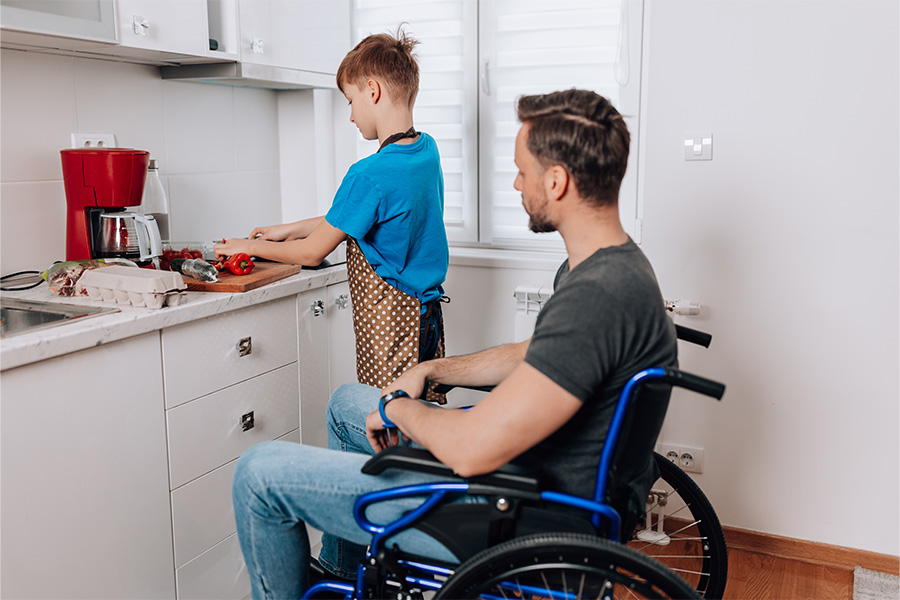Aimee Jaremowicz RD, LDN, interviews Julie Bombacino, CEO and Founder of Real Foods and parent of a tube-fed child.
“At first I was shell-shocked! AJ had been nursing for 6 months and I never knew that epilepsy could lead to needing a feeding tube. (I think I was like much of the general population who believe that feeding tube = having something wrong with your digestive system.) We were in survival mode those first few months. It wasn’t until we had been living with the tube for a bit of time that I was able to acknowledge how sad I was about it, about not being able to share the joy of mealtimes and first foods, etc. with my son.”
Julie, what have you found to be helpful during your journey with a tube-fed child?
It’s helpful for families to bring a highchair, baby rocker, or baby feeding table to the dinner table. Although it’s initially a trial-and-error period, it is important to include the baby or child during mealtimes because it strengthens the bond as well as the family dynamic, so they don’t feel different. To offer some additional tips, it can be beneficial to talk to the baby or child, humming, singing, holding their hand, and looking directly into their eyes while they eat.
A great perspective is to emphasize that the formula is going into the baby’s tummy, not the tube, and that is a loving process.
I encourage families to consider joining a tube-feeding support group. It’s a great opportunity to vent and share ideas from fellow parents/caregivers experiencing the same things.
From your experience, have you learned how professionals can better help parents of tube-fed children?
Recognize and acknowledge their feelings. It’s important to be supportive and reassure parents that their feelings are valid and normal. I would like to point out that grief, depression, postpartum, and PTSD are common. Grief is normal, especially during mealtimes and holidays. Whether it’s short-term or long-term, unfortunately, there is no “magic pill” to fix this, and they will need support.
Be sensitive. Don’t add more guilt or put more work on them because they’re feeling very overwhelmed. It’s important to be sensitive.
It’s important to be cognizant of what we say and how we are saying it. Try changing the language you use when discussing tube feeding. Avoid words such as “feeds” or “administer” and rephrase them to “give your baby formula” or “food”.
Ask them how they’re doing and offer ways we can help them. Start by truly listening to their expressed needs and anxieties because they might feel like they have an advocate or resource that is present and involved.














